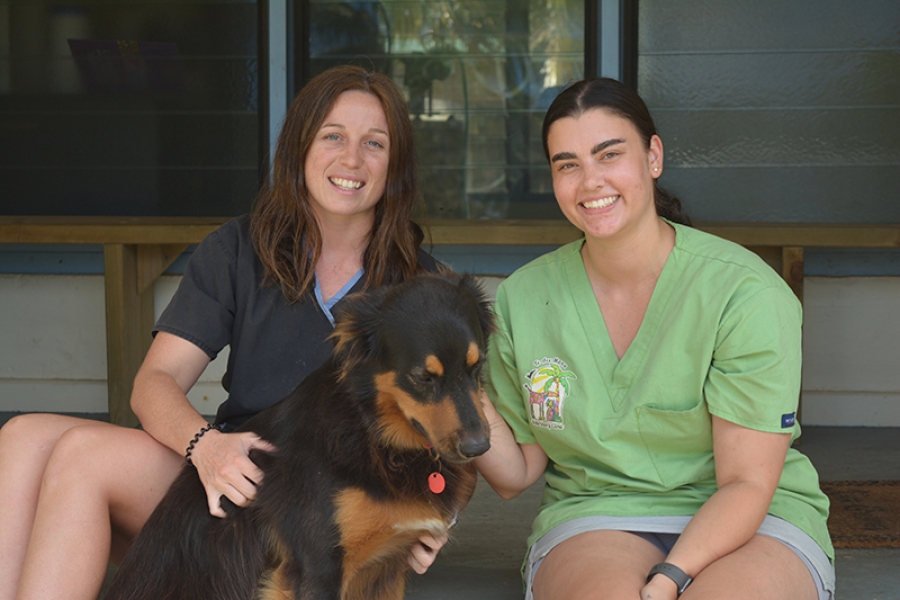PET TALK: A Day in the Life of a Vet
Wednesday 10 November 2021 | Written by Dr. Ellen McBryde | Published in Opinion, Pet Talk

Veterinarians Ellen McBryde and Katie Bradley with Te Are Manu's clinic dog Sonny. 19112031
Most of us don’t know much about what goes on behind-the-scenes at a veterinary clinic. We see puppies and kittens, old pets on their last legs, and everything in between - all on a daily basis. Dr Ellen McBryde takes you through a day in the life of a veterinarian in Rarotonga.
The start of the working day is pretty standard - coffee and a debrief.
Fortunately, there were no major emergencies overnight (phew!) but there are some follow-up appointments from the weekend. One dog has been in a fight and its wounds need stitching, so we add that to the surgery list for the morning.
Now to prepare for surgery.
Today, we have a female and a male cat, three female dogs, and the stitch-up from the weekend.
Uh-oh, one of the female dogs is on heat - this makes the surgery more difficult because the reproductive organs change when an animal is on heat - so we plan to do her surgery first.
Each patient receives a pre-medication injection before surgery.
This usually includes a combination of medications that provide pain relief as well as sedation, and helps create a smooth anaesthetic.
While we’re waiting for our first surgery patient to get a little sleepy, we quickly sedate and desex the male cat with the help of our star Vet Nurse.
Everything is going to plan so far.
But now we’ve got an emergency on the way! We finish up another desexing surgery and wait for the patient to arrive.
It’s a puppy that’s been hit by a car. Fortunately, it’s just a little bruised and battered, and has no major injuries.
We organise some pain relief and they’re on their way, relieved their puppy is OK.
We head back into surgery, just our weekend brawler left to stitch-up. But it looks like he snuck some breakfast while his owners weren’t looking because he’s vomited - everywhere. We always ask that surgery patients are fasted on the morning of surgery as a full stomach is a risk to your pet once it’s anaesthetised. We check him over to make sure it’s safe to proceed, and go ahead with his surgery. We clean up his wounds and stitch them back together - as good as new (almost)!
That’s the morning gone.
A quick bite to eat and we’re back at it. A cat has an infection from fighting with another cat, an old three-legged dog is struggling to get up and walk, and two puppies need worm and flea treatments. We’re able to provide treatment for each of these patients - it’s a good feeling because this isn’t always the case. It can be incredibly difficult for us, as Vets, when we are unable to help our patients.
But fortunately we have the ability to relieve an animal’s suffering when it is truly needed. A few more afternoon consults and it’s time to pack down, clean up, and head home. With the after-hours phone of course, in case of any emergencies...














































